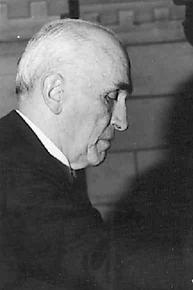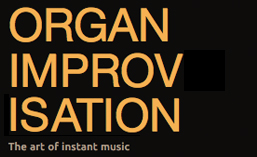 André Fleury (1903-1995) was born in Neuilly-sur-Seine, France. He received his musical training as a private student of Henri Letocart (a former student of César Franck), and later, of André Marchal and Louis Vierne. At the Paris Conservatory, he studied organ with Eugène Gigout and received a first prize in organ performance and improvisation under Gigout’s successor, Marcel Dupré, in 1926. Fleury also studied composition with Paul Vidal.
André Fleury (1903-1995) was born in Neuilly-sur-Seine, France. He received his musical training as a private student of Henri Letocart (a former student of César Franck), and later, of André Marchal and Louis Vierne. At the Paris Conservatory, he studied organ with Eugène Gigout and received a first prize in organ performance and improvisation under Gigout’s successor, Marcel Dupré, in 1926. Fleury also studied composition with Paul Vidal.
In 1920, Fleury became Gigout’s assistant at St. Augustin in Paris, and, later, also assistant of Charles Tournemire at Ste. Clotilde. He became titular organist at St. Augustin in 1930. In 1941, he was appointed professor of organ at the École Normale de Musique in Paris.
After World War II, Fleury relocated to Dijon. In 1949, he succeeded Émile Poillot as titular organist at Dijon Cathedral and as professor of piano (a year later also of organ) at the Dijon Conservatory. In 1971, he accepted Jean Guillou’s invitation to become co-titular organist at St. Eustache in Paris. He also was appointed as professor of organ at the Schola Cantorum and as titular organist at Versailles Cathedral.
As a composer, Fleury wrote numerous works for organ, many of which have not been published yet. He premiered several important organ compositions, such as the organ sonata of Darius Milhaud, Maurice Duruflé’s Scherzo op. 2, as well as La Nativité du Seigneur by Olivier Messiaen (the first integral performance of this organ cycle, after the premiere by Jean Langlais, Jean-Yves Daniel-Lesur, and Jean-Jacques Grunenwald).
Among his students were Bernard Gavoty, Pierre Cochereau, and Jean-Yves Daniel-Lesur.
Videos:
André Fleury – Improvisation-Demonstration of Dijon Cathedral – France
